Toxic Holocaust formed in nineteen ninety nine and gradually put out some albums as a one man thrash band. Then in the early twenty tens, the band became a trio with an added bassist and drummer. Their twenty eleven release,
Conjure and Command, displayed brutal thrashing and ominous grinding. It came across like
Sepultura meets
Slayer. In twenty thirteen,
Chemistry of Consciousness demonstrated explosive and energetic thrashing.
That album sounded more like bay area thrash and sounded something like
Death Angel crossed with
Exodus.
Toxic Holocaust is now a one man thrash band again, with Joel writing, performing and recording everything. He ditched Relapse Records for E1 Entertainment, which is an American label that deals mostly with core styled bands. This new release,
Primal Future: 2019, comes in a cardboard digipac and the booklet is a fold out poster, with the album art on the backside.
The CD commences with
Chemical Warlords, the introductory riffs are enhanced by strong bass notes and hard snare drum beats. Then the guitarist shreds with a faster and more upbeat melody. The vocalist growls out with a grim voice. “It hits like a storm in the bass of my spine, cerebral mutations.” “Ascension achieved with atomic machines, seeking injustice.” The drums are pounded faster and the bass is chugged with rapid downward notes. There are some interludes that sound similar to classic
Running Wild. It ends with some heavy slicing and dicing riffs. On vocals,
Joel Grind, exudes an unglamorous and macho persona with a commanding presence. His voice is moderately grim, with rough and throaty presentations.
The guitar is often played with fast riff shifting and bad ass shredding, to comprise head banging melodies. There is also a fair share of explosive thrashing, as well as some grinding. Sometimes sharp notes are ripped out and followed by incendiary solos, with dexterous fret board work. The fourth song, Deafened by the Roar, begins with a strong distorted riff. Then it takes off with fast and brutal thrashing that is bolstered by heavy bass notes. The vocalist angrily yells in a low fidelity recording. “Powers rise, destroy, defect!” “Murder orders, liar’s deceit!” The drums are shuffled along and the bass rhythms climb from low to higher notes, accentuating the thrashing guitar music. “Like a headless snake, you’re shaking with fear!” “
And the winds of death are growing near!” Then the song suddenly stops after less than a minute and a half.
The seventh track, Iron Cage, abruptly jumps into a dynamic frenzy of wild shredding. The guitarist speedily picks out the notes, the drum beats are quickly pounded, but the bass music is almost unnoticeable. Then the onslaught slows down momentarily, with a couple of powerful bass lines that are suspended for maximum effect. This gives the vocalist a chance to holler out his message. “Time has come, pay the price, face the rage!” “Time to rise ‘cause it’s time to fight, in the cage!” The tempo picks back up with high velocity grinding and speedy riff shifting. About halfway in there is a blazing fast high note guitar solo, followed by an anthemic riff. Mr. Grind usually plays the bass with midrange notes, at a speedy tempo that blends in tightly with the guitar music. Sometimes there is intense chugging, displaying mean outbursts of rough rhythms. Heavier bass riffs come later in the CD, with powerful lines that were meant to impress.
The drums are usually beaten tightly with the bass music and it’s not too fancy. There is some crossover shuffling patterns, occasional blast beats and snare drum flare ups. The bass drums and cymbals are used sparingly. The final number, Cybernetic
War, starts with melodic chopping riffs and expanding bass lines. The guitar music slices up and down at a mid range tempo, with the bass music following tightly. The vocals are growled out with a calm presentation. “We lost before the start, things are getting out of hand.” “Delete the code while you still have a chance.” Then about halfway in there is an interval with a screeching high note guitar solo. The bass music powerfully drives forth with high to low rhythms. “It’s been coming for some time, a thermonuclear age.” “In a cybernetic war, they are the masters and we are their slaves.”
Some critics are complaining that
Primal Future: 2019 is too short in length. Well this album is their longest so far, at over thirty nine minutes in length. The lyrical topics include rebellion against artificial cyber intelligence, nuclear war and the end of mankind. The first couple of tracks sound like thrash heavy, but it gets more thrash oriented and dynamic towards the end. This time he goes with a classic Canadian style, sounding something like
Piledriver crossed with
Razor. The vocals are a bit too grim for this fashion and probably would have sounded better with an angry clear voice. Joel can certainly handle all of the instruments by himself. But the bass music and drum playing was better with the previous performers. This recent album was recorded in medium to low fidelity, just like all of their past releases. But it would have sounded much better in high fidelity, using experts to record and master this work. A couple of low fidelity albums can add character to a band’s discography. But too many of those reveal a low budget production, which is what this is.
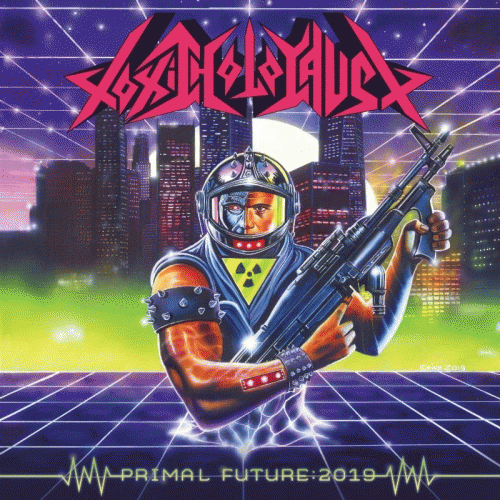
 Toxic Holocaust : Primal Future: 2019
Toxic Holocaust : Primal Future: 2019









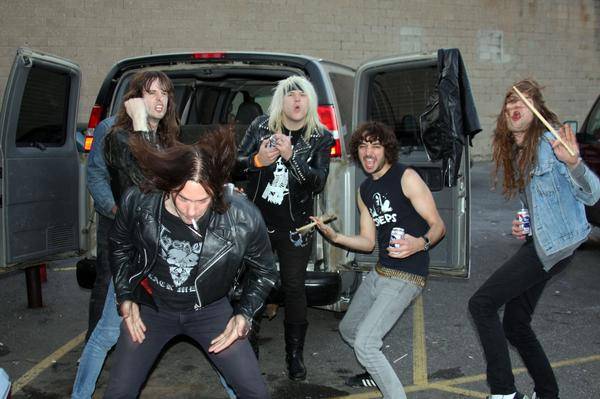
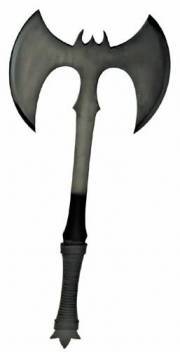
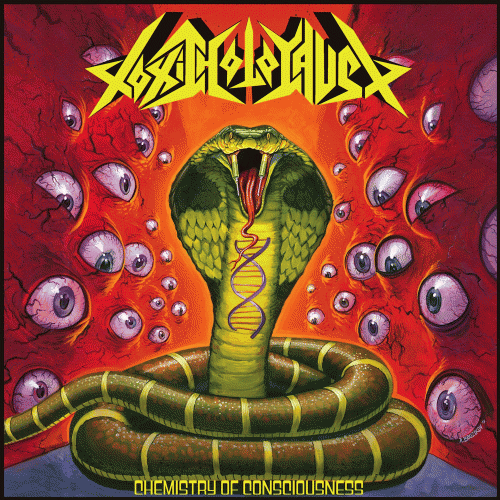
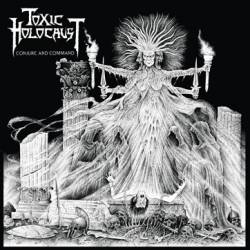
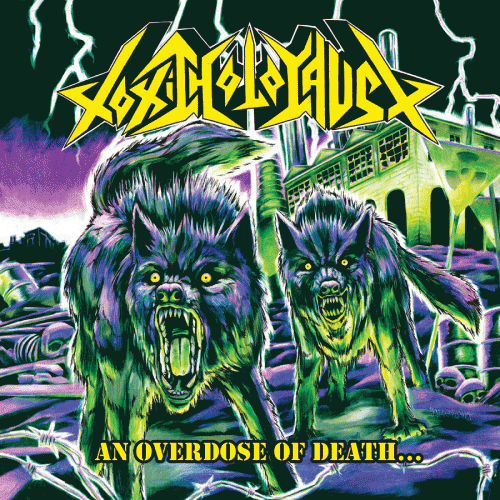
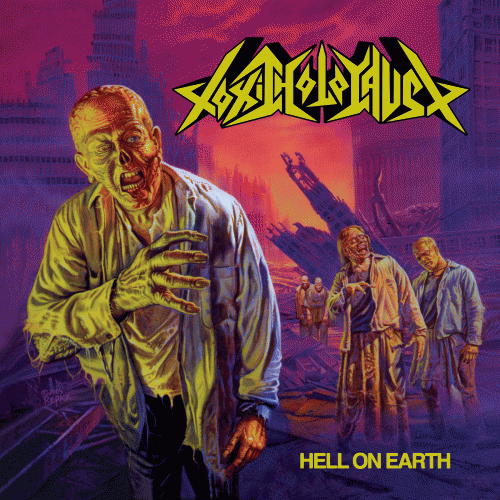
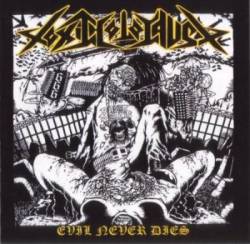
Vous devez être membre pour pouvoir ajouter un commentaire